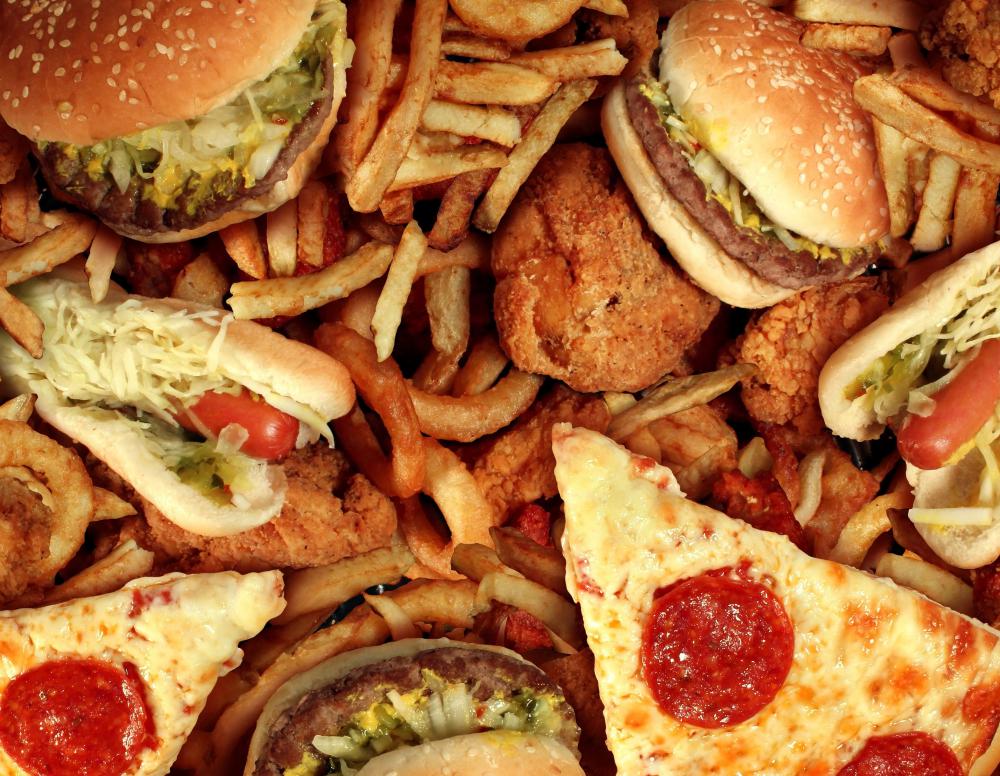At TheHealthBoard, we're committed to delivering accurate, trustworthy information. Our expert-authored content is rigorously fact-checked and sourced from credible authorities. Discover how we uphold the highest standards in providing you with reliable knowledge.
What Is the Importance of the Digestive System?
In the digestion of food, nutrients are broken down into simple forms and released for absorption by the cells of the body. This entire process is made possible by the digestive system. The importance of the digestive system involves the conversion of nutrients into a form that can be used by the body as well as nutrition absorption. Proteins, carbohydrates, and fats are large forms of nutrients that are fragmented into amino acids, sugars, and fatty acids, respectively. All these nutrients are essential for life.
Four stages make up the digestive process including ingestion, digestion, absorption, and egestion. Ingestion is the process in which nutrients from foods are taken in by the body, while digestion breaks down these nutrients into absorbable forms. In absorption, the digested nutrients move from the small intestine into the bloodstream to be distributed to other parts of the body. Egestion, or defecation, involves the ejection of waste or undigested food particles. These stages contribute to the importance of the digestive system.

Digestion starts as soon as food enters the mouth where it is chewed, crushed, and swallowed. Food particles then pass through the esophagus before they reach the stomach. Gastric acid produced in the stomach partially digests food particles that eventually go to the small intestine where they are fully digested. Unlike the acidic stomach, the small intestine has an alkaline environment. Food particles submerged in the gastric acid of the stomach are neutralized in the small intestine by the action of the pancreatic juice produced by the pancreas.

The importance of the digestive system does not end in the full digestion of food in the small intestine. Food particles that cannot be fully digested go to the large intestine where they are stored as waste products of digestion. In the large intestine, water is removed from these waste products, thus they become dry and semisolid feces. The composition of feces includes fiber, dead cells, and bacteria. The rectum serves as storage for feces, while the anus is the part where feces are released.

Experts have ever since used various scientific principles and procedures in order to study the human anatomy. Since the 17th century, research has proven that all body systems are interconnected to make the human body function well. While all body systems play crucial roles in the maintenance of human life, the importance of the digestive system should be emphasized because the body needs nourishment in order for other organs to function well. Diseases may result if the body cannot properly absorb essential nutrients.
AS FEATURED ON:
AS FEATURED ON:















Discussion Comments
What our digestive system does is nothing short of amazing. The food we eat is not readily usable. Our digestive system has to break it down and turn it into ATP as the article mentioned. This is the form of energy that our cells are able to use. The food we eat is first turned into glucose and the glucose is then turned into ATP. Without the digestive system, our cells would literally starve and stop working.
@burcinc-- I think that all body systems are equally important. Our lives rely on every system functioning properly. I don't think we can say that one is more important than the other.
There is no doubt that the digestive system is extremely important. Digestive system disorders are on the rise in the US with issues like ulcers, acid reflux and intestinal cancer being the most commonly seen. We need to take care of ourselves and keep our digestive system in top shape by eating healthy, natural foods. Eating junk food doesn't only increase weight or increase the risk of cholesterol or heart attack. Junk food is also terrible for our digestive system and prevents it from functioning optimally.
I didn't realize that the digestive system has so many different functions. Can we say that the digestive system is the most important body system?
Post your comments